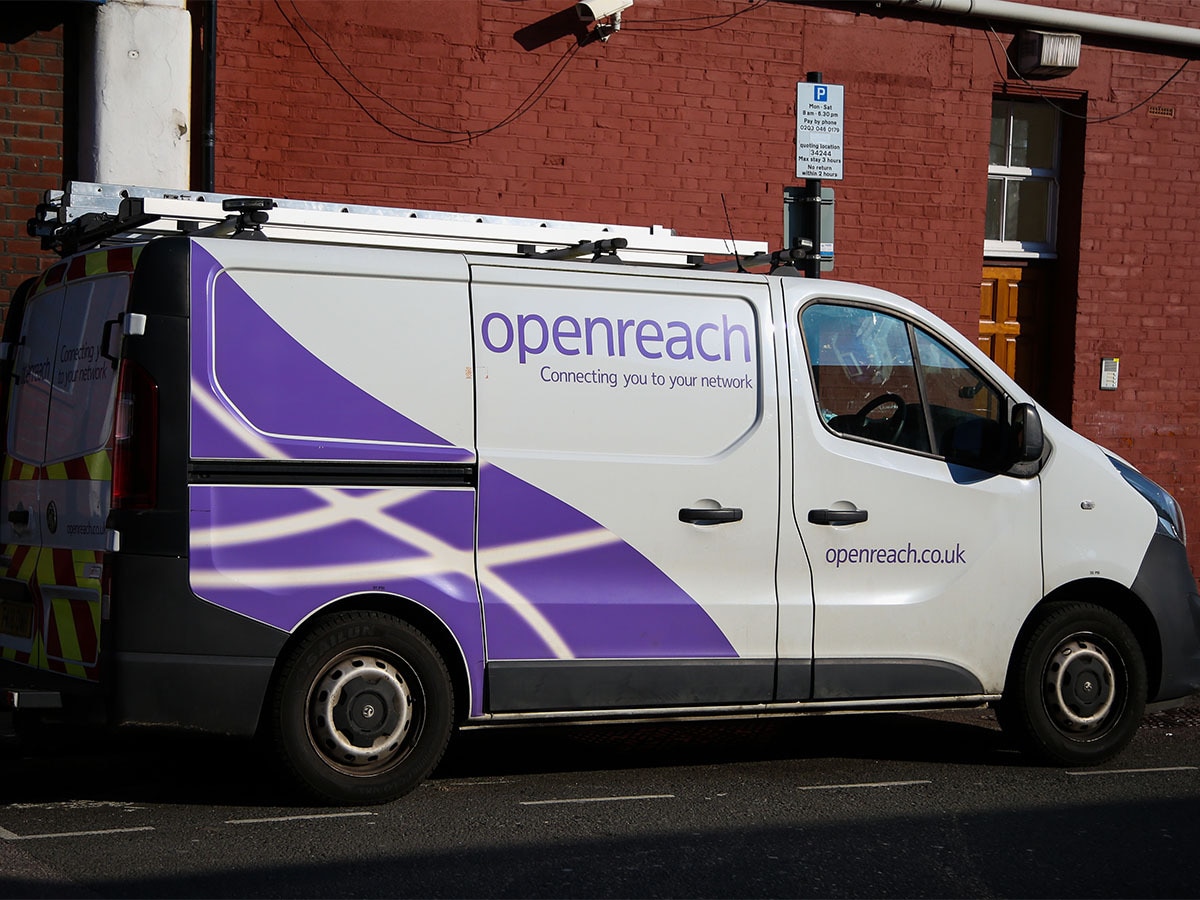BT’s price hike for customers could hit the telecommunication company’s fourth-quarter revenues, with analysts forecasting a 1.6% year-over-year fall. However, while the company’s increase in prices was in line with rising inflation, analysts believe that consumer price hikes could be a tailwind for the stock.
The BT [BT-A.L] share price is trending lower ahead of the announcement of its financial results on 12 May, weighed down by analysts expecting it to report a second consecutive quarterly decline in revenues.
According to BT’s latest consensus estimates based on analyst forecasts, the group is expected to report a 1.6% year-over-year drop in revenue to £5.2bn for the fourth quarter. Its revenues are likely to have been impacted by above-inflation price hikes and supply chain issues.
During the third quarter, Philip Jansen, the company’s CEO, also noted that revenue from its enterprise divisions was “softer” than it had expected, which could present continued challenges for the upcoming quarter as corporates cut investment post-pandemic.
Meanwhile, earnings are tipped to see a 3.5% hike to £1.8bn, fuelled by higher rental bases for BT’s fibre-enabled products in its Openreach broadband division. Cost efficiency programs are also forecasted to have once again bolstered profits.
These factors are also predicted to be part of the telecommunication company’s annual results. Full-year profits are tipped to come in at £7.6bn, beating last year’s £7.4bn, while total group revenue is forecasted to drop by 2.3% to £20.9bn.
BT raises prices in line with rising inflation
The cost of living crisis will be in focus in BT’s Q4 and full-year results. Analysts will be looking for any read-across to the recent Netflix [NFLX] results, which saw a drop in its subscriber base as households feeling the squeeze made TV one of their first culls to save cash.
However, BT has already adjusted its prices to reflect inflation and the company’s rising operating costs as it invests in its networks to support the soaring demand for mobile data.
On 31 March, the group raised its prices in line with the consumer price index rate, plus an additional 3.9%. Although financially vulnerable customers were promised exemptions, BT customers are likely to see an average increase of around £3.50 per month, according to USwitch.
Over the long term, investors are hopeful of a cash flow surge when the fast-fibre upgrade to Openreach’s broadband network completes around 2025. As a result, investors will be interested to see how many more connections took place in Q4. Openreach said it had connected more than 7 million homes to its full-fibre network in April. However, it faces growing competition from firms such as Virgin Media and Cityfibre.
BT in talks with Discovery
In the quarter ending 31 December, BT reported revenues of £15.7bn, which were down 2% year-over-year, hit by muted performance in its Global and Enterprise arms. Profits before tax dropped 3% to £1.5bn.
However, the company said that its 5G build was on track and its Fibre to the Premises rollout had reached 6.5 million properties, with 662,000 added over the quarter.
It also revealed that it would not be selling its BT Sport arm to DAZN for £580m and that it was in discussions with Discovery instead to create a joint venture. Jansen, as reported by Reuters, said: “There will be synergies, both in cost and revenue and it keeps us very much in the competitive framework for what is a very interesting, exciting content market.”
However, analyst Kester Mann said as BT focusses on networks and connectivity such as full-fibre, the likely “end-game” would be a sale of any joint venture with Discovery.
Consumer price rises set to be a tailwind
The BT share price has remained relatively flat in the year-to-date, rising from 169.55p on 31 December 2021 to 173.55p at the close on 9 May. The stock had hit a 52-week high of 206.70p during intraday trading on 23 June 2021 and low of 134.85 on 25 October.
According to 22 analysts polled by MarketScreener, BT has a consensus ‘outperform’ rating and an average target price of 216.94p, representing a 25% upside on the 9 May closing price.
Jefferies has a target price of 260p, expecting a return to revenue growth in the fiscal year 2023 supported by a £600m pricing tailwind as consumer price rises help the top line. This will be underpinned by an improving broadband base and average revenue per user trends. However, it is cautious about BT’s Global segment, due to potential difficulties in the recovery of project activity.
Disclaimer Past performance is not a reliable indicator of future results.
CMC Markets is an execution-only service provider. The material (whether or not it states any opinions) is for general information purposes only, and does not take into account your personal circumstances or objectives. Nothing in this material is (or should be considered to be) financial, investment or other advice on which reliance should be placed. No opinion given in the material constitutes a recommendation by CMC Markets or the author that any particular investment, security, transaction or investment strategy is suitable for any specific person.
The material has not been prepared in accordance with legal requirements designed to promote the independence of investment research. Although we are not specifically prevented from dealing before providing this material, we do not seek to take advantage of the material prior to its dissemination.
CMC Markets does not endorse or offer opinion on the trading strategies used by the author. Their trading strategies do not guarantee any return and CMC Markets shall not be held responsible for any loss that you may incur, either directly or indirectly, arising from any investment based on any information contained herein.
*Tax treatment depends on individual circumstances and can change or may differ in a jurisdiction other than the UK.
Continue reading for FREE
- Includes free newsletter updates, unsubscribe anytime. Privacy policy





